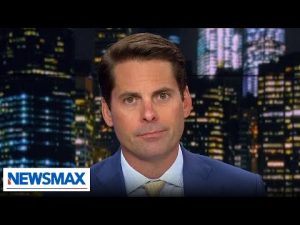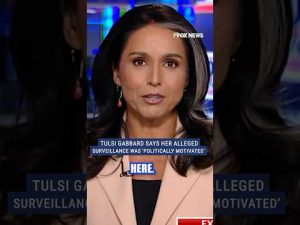In the hustle and bustle of Washington D.C., one thing has become clear: the need for transparency and accountability extends beyond policy and politics; it hinges on the person in the Oval Office. Recent discussions have zeroed in on President Joe Biden’s age and mental acuity, sparking concern among voters and prompting questions about how the media covers such vital issues. Many feel that the liberal media have handled the matter with kid gloves, glossing over the president’s frequent gaffes and signs of confusion in favor of more mundane or less pressing topics.
Despite claims of transparency during the campaign, President Biden’s visible struggles—such as losing his train of thought during speeches and incorrectly addressing individuals—have been topics brushed aside by some major media outlets. A crucial moment came when an interviewer who had the president’s ear opted to focus on foreign policy while sidestepping questions about his cognitive health. This missed opportunity was not just a blip for the outlet; it raises questions about journalistic duty. Where’s the fearless pursuit of truth?
These issues reach beyond mere age. While age is certainly a discriminant variable in assessing a leader’s capabilities, mental sharpness is what truly leads the charge. It’s one thing to discuss important policies or international conflicts, as this particular reporter did, but it’s another to not afford equal attention to the president’s ability to effectively handle those issues due to cognitive concerns. A journalist’s role should not only be to inform but also to scrutinize, ensuring that leaders are fit to serve the responsibilities of their office. The stakes are high, and those in the media must focus on critical factors that influence the nation’s future.
The media’s inclination to highlight social issues or complex policy debates often leaves basic questions about leadership competency unaddressed. Responding to their own admission of lax coverage, the journalist expressed regret but did little more than acknowledge the oversight. This sentiment, while appropriate, does little to alleviate voter concerns or ensure that future interviews probe deeper. The American public deserves coverage that not only informs but prioritizes concerns that might directly affect the country’s governance.
It is imperative that moving forward, members of the media take a more proactive stance in examining the president’s health and its implications for his role. By shying away from these tough questions, they risk losing the trust of their audience, which could have broader ramifications for public trust in media. The focus should be on creating an environment where transparency is not just promised but delivered, where voters are equipped with all the information they need to make informed decisions about their leadership.







